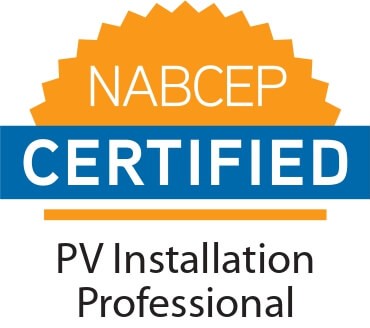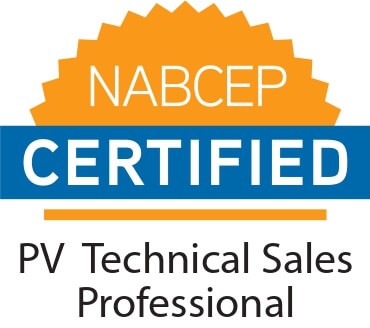This has been a year of big changes in the solar industry. That’s not completely unexpected in a relatively new industry based on quickly evolving technologies. For us, like most installers, it’s been a time to reassess, a time to confirm what your standards and core values are.
mads nørgaard taske
stenyobyvaci.cz
ribstol elan
tomnanclachwindfarm.co.uk
mads nørgaard taske
tomnanclachwindfarm.co.uk
truhlarstvibilek.cz
teplakova suprava
teplakova suprava
teplakova suprava
ribstol elan
skrue kasse
teplakova suprava panska
beckmann 12l
This process really started for us when we received word that the two biggest US module assembly companies, Suniva and SolarWorld, were in big financial trouble. Suniva is now gone, and SolarWorld is barely hanging on, hoping for the International Trade Commission to bail them out and save them from their own mismanagement. Time will tell how that ends when the ITC petition action is resolved.
When we learned of the Suniva and SolarWorld issues, we started looking around for alternatives. But we looked at the companies, not just the products they were selling. Obviously, a 25-year warranty doesn’t mean much if the company’s gone and the warranty obligation’s not covered by some type of long-term (and fully funded) insurance policy.
Long story short, we found two companies that meet our requirements at this time: REC and Panasonic Solar. The two modules are at opposite ends of the cost scale, but both are rock-solid companies. We now have enough of an installed base to be completely happy with both products and can recommend them with no hesitation.
I’ve always believed that quality isn’t a cost, but an investment.
Ever since I started Milestone Solar in 2009, we’ve been installing only best of class components – including solar modules. And by basing our business model on dozens, not hundreds, of installations a year, we’ve been making sure the quality of the entire installation lives up to the quality of the components. True, the best modules cost more than cheap, lower-tier modules, but they more than pay for themselves by generating electricity reliably and in the predicted amounts throughout the life of the system.
As an industry, the general trend in solar has been a race to the bottom, with cheap components and cheap, unskilled labor installing rooftop systems that are supposed to last 25 years or more. We’ve seen it in the thousands of “free” solar systems installed by national lease companies in Maryland, and we’ve seen it in the lowest bid price systems installed by (in my opinion) the fundamentally unqualified installation companies selected by many regional solar co-ops. I strongly believe that there will be a price to pay down the road for these substandard installations.
Apparently, lots of homeowners and business owners agree that quality matters. They want the highest quality components and a highly qualified design and installation team. That’s why I’m pleased to report that earlier this year Milestone was named an Authorized Panasonic Installer – the first and (so far) only one in West Virginia. Even though these modules do cost more, customer after customer has been happy to invest in them, because they’re also demonstrably better — in terms of predicted production and featuring the industry’s best warranty.
It’s also why the buyers of three of our latest systems – a 72-module parking canopy installation in Virginia, a 160-module ground mount system in Maryland , and a 32-module ground mount in West Virginia – chose Panasonic HIT® solar modules, hands-down.
Panasonic has been mass-producing HIT panels since 1997. They make every part of every HIT panel internally, and in the 19 years from their 1997 introduction to the end of 2016, they’ve had a failure rate of only 0.01%. In an industry where 10-year manufacturers’ warranties are the norm, Panasonic gives you a 25-year workmanship warranty and a 25-year output warranty (both of which even cover labor and replacement shipping costs).
Panasonic HIT panels simply produce more energy. Their internal pyramidal cell structure captures light that other cells would reflect away. They also have one of the best responses to higher temperatures, which results in less voltage drop and much more output over time.
REC also has a good story to tell:
- Leading European brand of solar panels, founded and headquartered in Norway
- Over 20 years experience in the solar industry, from silicon to panels
- Lowest debt among leading panel manufacturers
- Number-one brand of panels for California homes in 2015 & 2016 (GTM Research U.S. PV Leaderboard)
- Lowest known warranty claims rate
I consider the REC modules a very sound choice for anyone looking at a solid module, at a moderate price, from a very solid company with a significant number of plants and employees in the US.
The decision on which to use involves a number of factors, including:
- Budget – A Panasonic system will cost more upfront, but will actually cost less over time.
- Roof space – Limited roof space is a perfect situation for high-performance modules, which produce more electricity per square foot.
- Warranty – Panasonic’s is the industry’s best.
- The importance of long-term production expectations – Panasonic leads the industry and will produce significantly more energy over time. The technical data points are amazing.
- Many people like to invest in the very best, designed and installed by a highly qualified installer. Those folks are choosing the Panasonic systems.
We’ll be happy to lay out all the facts and figures, discuss the pros and cons, and help you arrive at an educated decision with no sales pressure whatever.
Just as we have since 2009.




